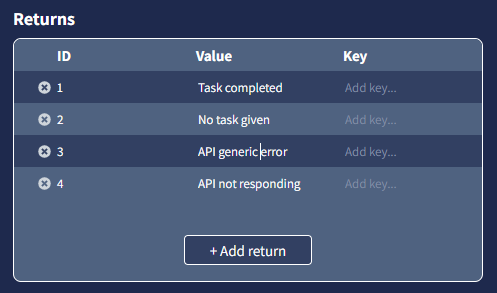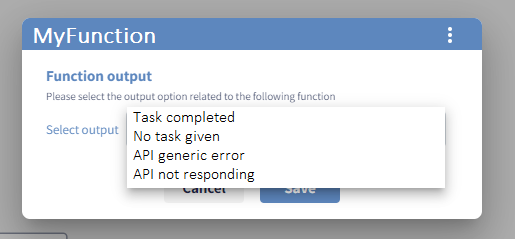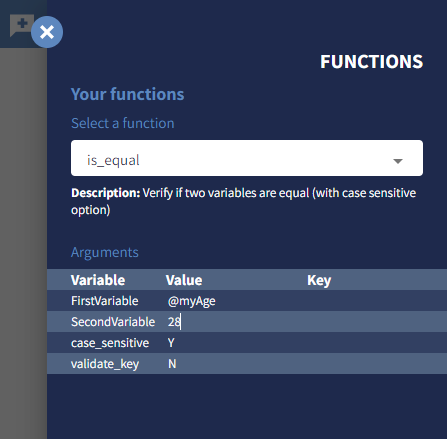#Arguments and returns
Definition of returns
The box Returns allows the CPA user to define the outgoing edges coming out from the functional node.
Every return is defined by a unique id automatically assigned by the system, a value and a key (both optional).
Returns defined in the table will be available as function outputs in the Build module. For example, given the following list of returns:

The function outputs (which means the edges outgoing from the functional node) list will be like it shown below:

⚠️Important note: Every function must have at least one return.
Definition of arguments
If a function is required in multiple steps of the conversational process, then it may be useful to adopt a parameterized approach. This can be easily done with the Arguments configuration table.
Every argument can be assigned with a unique name and optional default value and key.
The function is_equal, for example, has the following arguments:
FirstVariable
default value:
default key:
SecondVariable
default value:
default key:
case_sensitive
default value: Y
default key:
validate_key
default value: N
default key:The CPA user is able to assign the parameters straight from the function configuration in the Build tab.

Arguments can be used into the source code with the function get().
try:
# Get FirstVariable and SecondVariable
var1, var2 = get("FirstVariable"), get("SecondVariable")
# Consider value or key depending on the validate_key parameter
if get("validate_key")["value"] == "N":
var1, var2 = str(var1["value"]), str(var2["value"])
else:
var1, var2 = str(var1["key"]), str(var2["key"])
# Set to lower if not case sensitive
if get("case_sensitive")["value"] == "N":
var1, var2 = var1.lower(), var2.lower()
# Check if FirstVariable and SecondVariable are the same
if var1 == var2:
exit(1) # FirstVariable and SecondVariable are the same
exit(2) # FirstVariable and SecondVariable are different
except Exception as e:
print("Got the following unexpected error in the execution: " + str(e))
exit(2) # FirstVariable and SecondVariable are different